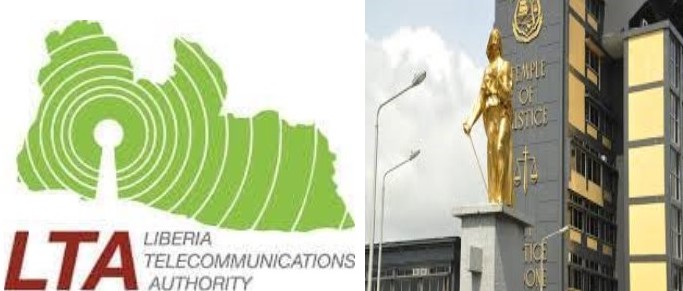Liberians are anxiously awaiting the outcome of a ruling by the Supreme Court of Liberia into a petition for Judicial review before the Civil Law Court requesting the court to stop the Liberia Telecommunications Authority (LTA) from further levying surcharge on voice calls and internet.
The move by the LTA brought to an end the three days free call incentive Liberians enjoyed until September 1, 2019, when LTA ORDER 0016-02-25-19 issued on February 25, 2019 was put into effect.
Orange Liberia filed a petition for judicial review before the Civil Law Court requesting the court to stop LTA’s action.
The long gap was due to a challenge by Orange Liberia, one of the two major Mobile Network Operators (MNOs), which filed a petition for Judicial Review.
It is contending that LTA levying of surcharge would not only affect its business, but would also render Liberians unable to pay the cost for services and that in fact the levying of surcharge, a tax, was a violation of the Liberian Constitution as only the Legislature can levy taxes.
Although the Civil Law Court ruled in favor of LTA, Orange Liberia appealed the ruling to the Supreme Court, which has since not determined the appeal, pending before it now for a second term of the Court.
Legal experts say that “under Liberian law and practice, an appeal that is duly before the Supreme Court is an automatic stay of any further proceedings in that matter until the Court decides.”
Therefore, legal pundits have expressed surprise that the LTA elected to implement its Order while the appeal is pending.
“As if the implementation of the first part of its order, imposing a floor price and 5% regulatory fee was not enough,” one Liberian Lawyer said, “the LTA recently issued a notice to the MNOs that it would effect the surcharge provision of its ORDER on March 1, 2020. In the face of the pending appeal, LTA has commenced the implementation of the surcharge.”
Since the implementation of the floor price and 5% regulatory fee, Liberians have had to tackle the increased cost in telecommunication. For example, although US$1 or its Liberian dollar equivalent will provide the same three-day service, the calling period has dropped significantly from the previous 72 hours or 4320 minutes to 45 minutes.
Public outcry against the high cost of telecommunication services has touched all facets of Liberian society without any redress.
This is perhaps why the LTA now is undertaking a higher cost structure, as the World Bank Group (WBG) itself has observed.
In a letter to authorities of the Government of Liberia through Finance and Development Minister Samuel D. Tweah, accompanied by a critical analysis of the telecommunication sector in Africa, the WBG expressed its concerns that instituting a surcharge would be detrimental to the entire Liberian society and telecommunication business in Liberia.
The Bank urged the government not to undertake the imposition of surcharge. We have reliably learned that the two MNOs hailed the intervention of the WBG and committed to working cooperatively with the government to ensure the provision of affordable and quality telecommunication services to all Liberians.
However, the pending appeal before the Supreme Court and the WBG’s intervention and the resulting negative impact the imposition of the surcharge will have on Liberians, that the government recently issued invoices to the two MNOs demanding the payment of over three million US dollars as surcharge for the month of March, according information received.
This is coupled with what is said to be renewed commitment of actors in the sector to ease the cost on the public.

